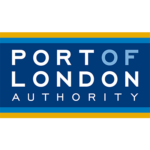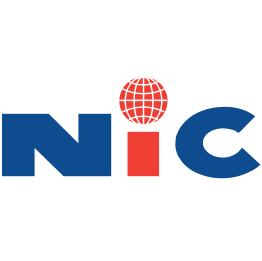Franchising is an ideal career choice for someone leaving the Forces and looking to start a business of their own…
Franchising gives you the opportunity to be your own boss. It allows you to enter an industry in which you have no previous experience in and buy into a tried and tested format with systems and procedures you can follow. However, franchising, like any business start-up, is a complex area. To make sure you don’t make any costly mistakes, and in order to be successful as a franchise owner, you need to make sure you research it properly.
In this article we address some of the “myths” we have come across and correct them with the facts about franchising.
Myth #1: Franchising guarantees success
A major benefit of franchising is the fact you are buying into a tried and tested concept; someone else has made the mistakes for you, allowing you to start a business that is already proven to work. However, by no means does it mean that franchising guarantees success. How successful you are depends on a number of areas:
- Firstly – are you right for franchising? We do not pretend that franchising is for everyone; it takes a certain type of person to follow someone else’s systems. If you are someone who wants to go in and change lots about the business, then the likelihood is that franchising isn’t for you. If you like following rules, and used to follow systems and procedures, like many in the Armed Forces do, then it could be the right route into business start-up/new career for you.
- Secondly – look past what franchise you think could make the most money, and instead focus on the type of work you would enjoy doing. Do you want to be a sole trader and work from home, or maybe be out and about meeting people, or manage people from an office, or run a retail franchise? Are you good at sales, or maybe a natural when it comes to customer service, do you like managing people etc? Addressing what you like doing and what you are good at, as well as the type of business you would like to run, helps to narrow your choices.
- Thirdly – make sure you know how to identify an ethical franchisor. Unfortunately, not everyone is looking to forge lasting relationships and build a sustainable business, there are many who consider franchising as a “get quick scheme”. They are not technically franchises, but trying to trade under the franchise name. The way to avoid this risk is to do as much research as possible so you are equipped with knowledge to spot a “bad” franchise.
whichfranchise has a step by step guide to franchising that address each of these areas.
Myth #2: It’s a turnkey business so I just need to turn the key, right?
Wrong! Though we have stressed that a major benefit of franchising is the fact it’s a tried and tested business format you are buying into, this does not mean you open your doors for business and the franchise runs itself. You still have to invest a lot of time into the day to day running of the business. This is your business so you need to be 100% involved in it. And prepared to get stuck in! As well as being the owner, you will also have to be the accountant, sales person, marketing manager, HR and tea person!
Myth #3: A list of best franchises exists
If I had a pound for every time someone asked us what the best franchise is, I would be very rich! There is no such as thing as the ‘best franchise’ as what works for you might not work for someone else and vice versa. Knowing what you are good at and like doing, will help you to identify franchises that are right for you.
Myth #4: Franchises cost too much money
Yes, franchising can be expensive if you go for certain brands but as there are literally hundreds of franchises in the UK, with investments ranging from a few thousands to a few million, there is something for everyone. And a smaller investment doesn’t mean it is not a good brand or one that is not worthwhile buying, it just means that their overheads may be lower and/or they may not have the universal brand awareness that more established brands have. Franchises that can be run from home or are mobile based will tend to have lower overheads and hence a lower investment.
Also it is worth noting that banks particularly love franchising as it is safer to lend to franchisees who are part of a well-structured, recognisable and ethical franchise system. For an established franchise, you can get up to 50 – 70% of the start-up cost.
Myth #5: I could set up the business myself and save money
Statistically, franchising is a safer option as opposed to doing it yourself. That’s why banks like supporting franchising; their money is more secure in a franchise. Franchisors give you a lot more for your money than many think, when you start to list it out you can see where your money goes – training, recruiting, ongoing support, marketing, advertising etc. When looking at franchise opportunities, compare what you get for your money; ethical franchisors should be able to give you this information.
Myth #6: I can’t buy a business I know nothing about / I’ve no experience in that industry
One of the major benefits of franchising is that it allows you to buy a business in an industry in which you have no specific skills or experience in; the franchisor will train you in all aspects of running their franchise.
Myth #7: It’s best sticking to a brand you know
Ok, whilst buying a franchise with the likes of McDonalds or Dominos will bring instant brand recognition, there are many brands out there that are not necessarily household names, but are leaders or dominant players in their own industry.
Myth #8: There’s no freedom to add my creativity
Though franchising does involve following systems and procedures set up by the franchisor, most franchisors will welcome ideas and suggestions from franchisees. Many franchises have adopted ideas from franchisees to create a new service or product; McDonalds and Dominos have both successfully launched products globally that were initially developed by a franchisee.
Franchising can be an excellent route to starting your own business, and by adopting a tried and tested business model and having the support of a franchisor whenever you need it, success rates are higher than starting your own business from scratch. It is however important that you conduct all of the relevant research, and involve franchising experts such as lawyers etc wherever possible.
This article was written by Suzanne Melville, Marketing Manager,whichfranchise.com
For free and impartial advice on everything you need to know about franchising, please visitwww.whichfranchise.com
















